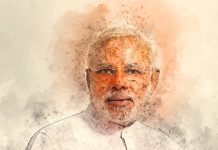B.R. Ambedkar (Bhimrao Ramji Ambedkar)was an Indian jurist, politician, and social reformer who inspired the Dalit Buddhist movement and campaigned against social discrimination towards the Dalits (untouchables) while also supporting the rights of women and labor. Ambedkar was born in a poor family. He belonged to the Mahar caste, and people who belong to that community were treated as untouchables. But despite this, he attended the school established by Mahatma Phule, a hero for the lower caste.
I have nothing to offer but blood, toil, tears, and sweat: This was the path of democracy laid out by Great Britain’s Winston Churchill. It was the same path that Bhimrao Ramji Ambedkar chose for India. It is a path that we should all take towards ensuring our rights as citizens. Ambedkar truly cared for the nameless millions who were trampled upon by British rule. He had a keen eye to recognize inequality, and he knew what it meant to be deprived of basic rights like education and equal opportunity.
- Ambedkar believed that Shudras and Ati Shudras constitute the lowest caste in the ritual hierarchy of the caste system.
- The Reserve Bank of India was conceptualized by the guidelines provided by Dr. B.R. Ambedkar to the Hilton Young Commission, based on his book, The Problem of the Rupee – Its Origin and Its Solution.
- Hilton Young Commission was also known as Royal Commission on Indian Currency and Finance.
Ambedkar’s main contribution to modern India:
- Education: According to B.R. Ambedkar, education is the right weapon to end social slavery. Education will inspire the oppressed people to upgrade and gain social status, economic improvement, and political freedom. In 1923, Baba Saheb established Bahishkrit Hitkarini Sabha to popularize education among marginalized people and improve their economic conditions. Therefore, it has played an important role in marginalized education.
- Changing the hierarchical structure of Indian society: Dr. Ambedkar has devoted his life to fighting for the elimination of the caste system through the spread of the evil movement against the caste system. He did his best to change the hierarchical structure of Indian society, restore equal rights/justice for the marginalized, and abolish untouchables. Bring untouchables into the mainstream of Indian society-their plan focuses on integrating untouchables into Indian society.
- His ideas and plans put forward specific suggestions for eliminating untouchables and empowering the oppressed. Dr. B.R. Ambedkar believed that the provisions of the Indian Constitution require the establishment of an inclusive and secular constitution for the justice of the untouchables and other disadvantaged groups in society.
- The constitution of India (which was drafted by Ambedkar) grants constitutional guarantees for civil liberties (including freedom) to citizens, protects religion, abolishes untouchables, and prohibits all forms of discrimination.
- He was a model force in drafting the Hindu Code Act, which established uniform provisions for equal treatment within the family, especially for women.
- The uprising of the marginalized: Ambedkar advocated for women’s broad economic and social rights and won the support of parliament to introduce a reservation system for members of registered castes and tribes, as well as civil servants, schools, and other backward classes in universities. He emphasized the equality of religion, gender, and caste.
- Fundamental rights: Ambedkar’s stigma is embodied in the fundamental rights of equality, the reservation of scheduled castes and tribes, the state’s committee and commissions for scheduled castes and tribes, and the guiding principles of national policies.
- Caste discrimination is still rampant, but it is certainly at a declining level.
- Economic contribution: RBI was conceptualized and formulated by Ambedkar as a trained economist. Ambedkar also reflects the importance of waterways. In 2015, the Indian government learned from his vision and upgraded the waterway to a national waterway.
The essence of Ambedkar is to develop systemic changes, and not to yearn for political freedom, but to integrate this into and practice its true philosophy coupled with large amounts of social and political awareness. He felt that the economic strength of the Dalit community must strengthen so that they can get their equal share and respect in society.






Thanks for sharing excellent informations. Your website is very cool. I’m impressed by the details that you’ve on this web site. It reveals how nicely you understand this subject. Bookmarked this web page, will come back for extra articles. You, my pal, ROCK! I found just the information I already searched all over the place and just couldn’t come across. What an ideal website.
Thank you so much
An interesting discussion is worth comment. I think that you should write more on this topic, it might not be a taboo subject but generally people are not enough to speak on such topics. To the next. Cheers
I have read some excellent stuff here. Definitely value bookmarking for revisiting. I wonder how so much effort you put to make such a excellent informative web site.
Thank you Marizon
Perfectly composed post!